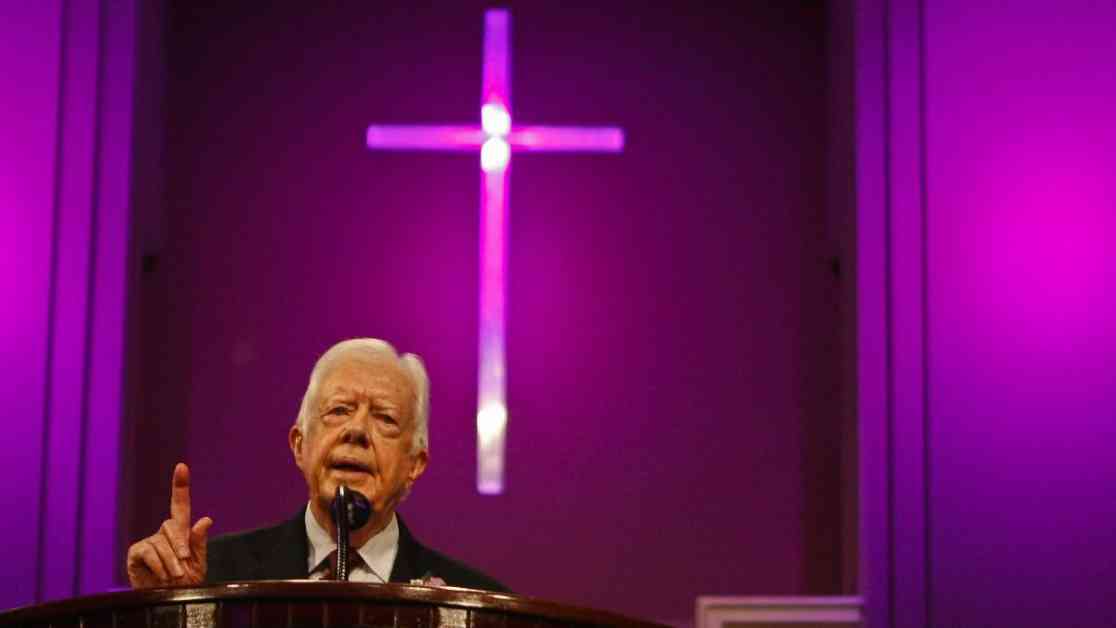Jimmy Carter: A Legacy Beyond the White House
In the heart of Winston-Salem on the cusp of the 1976 North Carolina Democratic primary, a simple question posed to then-presidential candidate Jimmy Carter set off a chain reaction that would reshape American politics. A voter asked Carter if he was a “born again” Christian, to which the Southern Baptist Sunday-school teacher earnestly replied, “yes.” This declaration sent shockwaves through the political landscape, prompting a wave of curiosity from journalists outside the Bible belt.
Carter, guided by his faith, embarked on a journey to embody the principles of his evangelical beliefs. Drawing inspiration from 19th-century evangelical activists who championed social justice causes, Carter’s progressive evangelicalism was deeply rooted in a commitment to equality and justice for all. From advocating for racial equality to supporting women’s rights, Carter’s presidency was marked by a steadfast dedication to addressing societal injustices.
Carter’s Presidential Achievements
As the 39th President of the United States, Carter sought to redefine American foreign policy by prioritizing human rights over Cold War politics. His efforts to promote peace in the Middle East and advance gender and racial diversity in federal offices showcased his commitment to inclusivity and diplomacy.
Post-Presidential Contributions
Despite facing defeat in the 1980 election, Carter’s post-presidency was characterized by a remarkable resurgence. In a groundbreaking move, he established the Jimmy Carter Presidential Library and Museum, alongside the Carter Center, in Atlanta. This visionary initiative aimed to create a space for conflict resolution and humanitarian efforts, setting a new standard for ex-presidents beyond their White House tenure.
Legacy of Service
Carter’s enduring legacy extended far beyond his presidency, encompassing a wide range of humanitarian endeavors. From eradicating neglected tropical diseases to promoting democracy and human rights globally, his tireless dedication to peacebuilding and conflict resolution earned him the prestigious Nobel Peace Prize in 2002.
Through his unwavering commitment to social justice and humanitarian causes, Jimmy Carter emerged as a beacon of hope and compassion in a world fraught with challenges. His remarkable journey from Plains, Georgia, to the global stage serves as a testament to the transformative power of faith, empathy, and perseverance in shaping a brighter future for all.
As a personal touch, I vividly recall the moment when Jimmy Carter choked up while recounting the story of building a house for a family living in an abandoned septic tank. This poignant anecdote encapsulates the essence of Carter’s lifelong mission to alleviate suffering and bring hope to those in need, leaving an indelible mark on hearts worldwide.



























